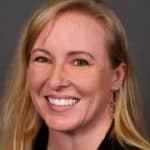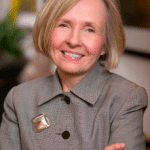Last week’s Mayo Transform symposium was a two-day excursion into the world of science, data, design, and the secret ingredient to health: love.
Patch Adams, MD, kicked things off in grand style. If you’ve never seen him speak, treat yourself to a hit of his energy:
In 1971, he and his compatriots opened a 24×7 hospital in a six-bedroom house to address every aspect of health, free of charge. Their “ideal patient was somebody who wanted to create a deep, personal friendship with us” and who understood the hospital promised care, not cure.
And now for something completely different (but stick with me — there is a theme here): Sharon Gibson, a health industry executive at Cisco Systems, who showed off a frankly luxurious clinic built to employee wish list specifications.
Check it out:
I wasn’t surprised to see her data on the fewer hospital stays and higher use of generic drugs among their (ahem) majority-male, majority-college educated, majority-high income client base compared to the surrounding community.
But here’s what did surprise me: Cisco is not measuring the financial return-on-investment (ROI) of this spa-like clinic. They are measuring it in terms of customer (in this case, employee) satisfaction. To me, that sounded quite a bit like what Patch Adams described. Or, as I wrote down, “What is the ROI on love?”
That question was threaded throughout many of the other presentations:
Sona Mehring physically and memorably demonstrated the way a weight is lifted from someone’s shoulders when they realize they can use CaringBridge to keep in touch with all the friends and family members who want updates and to express their love.
Dean Ornish, M.D., sped through a cascade of evidence about how lifestyle change can transform a person’s health. He said that the level of effort is parallel to the level of improvement for both heart disease and prostate cancer. But even more startling (to me) was his assertion that the U.S. is dealing with an “epidemic of loneliness and depression” more than an epidemic of disease. He urged not only a low-fat diet, but an increase of altruism, forgiveness, intimacy, and compassion. In other words: Love.
Michael Celender of the University of Pittsburgh Medical Center talked about how they approached the “ideal story” for their Children’s Hospital, asking how a family involved in a car accident can provide comfort to each other even if they are being treated in separate hospitals? Answer: A video link so kids can “visit” their parents. What’s going to lower stress levels on all sides in that situation? Yep: Love.
Sharon Schindler Rising of the Centering Healthcare Institute, Inc., talked about how bringing expectant mothers together in a group care setting not only improves outcomes, but gives the moms a supportive community. One woman, who suffered early fetal loss, knitted each of the other expectant moms a pair of booties, presenting them with her best wishes for a healthy birth. (Love.)
But it’s not just patients who benefit. Clinicians find that the new paradigm of enabling better self-care allows them to focus on what they do best. And that makes everyone feel good. Or as one patient wrote in an evaluation of the Centering Health program: “I love seeing my provider so happy and enthused.” (For more information, read Amy Romano’s excellent post on Centering Pregnancy.)
There were many other amazing presentations, but one of the most love-centered was by Sekou Andrews, who asked us to take stock of our health in the same way that we take stock of our finances. Indeed, his was the ultimate “What is the ROI on love?” talk:
Call me corny, but I’m going to take Sekou’s advice and keep track of my Net Health along with my Net Worth. And love is factored in to a degree that I didn’t appreciate before Mayo Transform 2010.






Great post, Susannah. I believe strongly that there is a scientific basis to the Universal Love Theory of Health. I think it is behind some of the scientifically validated benefits of midwifery care, doula support in labor, and group prenatal care (Centering Pregnancy). And scientists are looking at the role of oxytocin, aka “the love hormone,” (a very familiar hormone in my line of work) in everything from autism to depression. The opposite of love, violence and isolation, are implicated in preterm birth, postpartum depression, and behavioral problems in children. I honestly think that if we had more love in health care and in our communities and families, women would need little else to give birth safely, and breastfeeding would happen a lot more easily, too. Glad to know I share these “fringe” beliefs with the awesome leaders who took center stage at Mayo!
Amy, you would have loved Margie Morris’s presentations at yesterday’s e-Patient Connections conference. Here’s her bio: http://epatient2010.com/speakers/speaker-bios#morris
My favorite quote: “emotional responses are a health behavior.”
For a summary, check out the live-blogging happening on this site:
http://www.whatsyourdigitaliq.com/2010/09/28/live-blogging-epatient-2010/#more-1334
Susannah, Thank you for this beautiful post.
Thank you for creating a program that was so inspiring (and for putting all the vids online, making it easy to share).
Of course, all innovation should be done with L.O.V.E.
L-Life: Innovations should strive to improve quality of life for many not just the few. True quality that enables people to be healthy, happy, and able to become all they can. Innovations should never be done at the expense of others.
O-Observe: Innovations that are the most accepted are those that resonate with people and their cultures. The best innovations occur when people observe and appreciate life in all its dimensions: physical, psychological, spiritual, social, economical, etc.
V-Vow: Merriam-Webster defines it as: A solemn promise or assertion ; specifically : one by which a person is bound to an act, service, or condition. People need commitment from others-real commitment that allows them to plan and count on other people. We need to be as strongly committed to others as we are to ourselves and our own interests. We need to promise it.
E-Elegance: Innovations need to be simple, beautiful, dignified-Elegant.
http://bit.ly/9B0pgL
Excellent – thanks for sharing!
WOW – I know we’ve got a depression epidemic in this country (antidepressants are the most prescribed drugs in the US), it would seem to be a no-brainer to introduce the idea of communion/community into healthcare. The best doctors do, but most healthcare seems to be delivered by automatons, not people.
Great post. Will share freely ;)
Thanks, Casey! Your reaction is exactly why I wrote this post – more people than the 500 in the room should benefit from what the speakers said at Mayo.